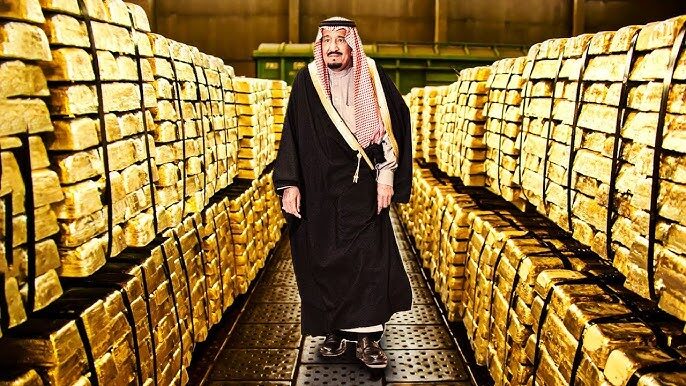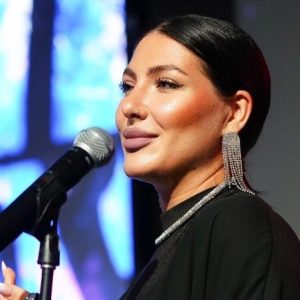The Luxurious Lives of the World’s Richest Arabs: Secrets to Their Unstoppable Success
In the glittering world of wealth and luxury, a select group of Arab individuals have become synonymous with opulence, influence, and power. From billion-dollar empires to lavish palaces, private jets, and yachts, the lives of these ultra-richest Arabs are a world away from the everyday realities faced by most. But what lies behind their success? How have they risen to such extraordinary heights, and what lessons can the rest of the world learn from them?
From Oil Empires to Global Influence
Historically, many of the wealthiest Arabs have built their fortunes in oil. The Middle East is home to some of the largest oil reserves in the world, and families like the Al Nahyans of the UAE, the Al Sauds of Saudi Arabia, and the Al Thani family of Qatar have long been at the center of this financial boom. But their wealth isn’t just confined to black gold. Many of these families have diversified their portfolios, making savvy investments across industries including real estate, technology, luxury brands, finance, and sports.
Take, for instance, Saudi Arabia’s Prince Alwaleed bin Talal, often dubbed the “Arabian Warren Buffet.” A self-made billionaire, Prince Alwaleed’s investments span across the globe. His stakes in companies like Citigroup, Twitter, and the Four Seasons hotel chain, along with his ownership of vast swaths of land and businesses, position him as one of the most influential figures in the global economy. His wealth is a testament to how the modern Arab elite are not simply relying on inherited oil wealth—they are creating empires that transcend regional borders.
The New Arab Millionaire: A Modern Success Story
While oil wealth continues to fuel the fortunes of many, a new generation of Arab entrepreneurs is rewriting the rules of success. These individuals are creating wealth through innovative businesses in industries like tech, entertainment, and fashion. Young, dynamic, and tech-savvy, they are leveraging the internet and the digital economy to reach global markets and reshape industries.
In Dubai, the heart of the UAE’s cosmopolitan lifestyle, figures like Khaled Fadly, co-founder of popular tech startup Beehive, have brought new energy to the Arab entrepreneurial landscape. Dubai’s strategic positioning as a global business hub, combined with favorable tax laws and state-of-the-art infrastructure, has allowed many young Arabs to transform their start-ups into international enterprises.
Lebanon-born billionaire Maysa Asmar, another example of modern Arab success, has built a multi-million-dollar fashion empire catering to the wealthy elite worldwide. With her eye for high-end design, luxury, and exclusivity, Asmar’s brand has flourished even in the face of adversity and political instability in Lebanon.
A Culture of Giving: Philanthropy and Social Responsibility
One of the most striking features of the wealthy Arab elite is their commitment to philanthropy and social impact. Many rich Arabs see their vast wealth not just as a means to enjoy luxury, but as a responsibility to improve their communities and the world at large.
Prince Alwaleed bin Talal, for example, has pledged billions of dollars to charity through his charitable organization, the Alwaleed Philanthropies. His foundation supports global initiatives in education, healthcare, disaster relief, and women’s empowerment. The Prince’s giving goes beyond financial contributions—he’s also deeply involved in fostering international cooperation, supporting causes such as poverty alleviation and fostering better understanding between cultures.
Likewise, the Al Qasimi family in Sharjah, UAE, has long been recognized for its charitable endeavors, particularly in the areas of education and cultural preservation. As one of the richest families in the Emirates, the Al Qasimis have invested heavily in the region’s cultural heritage, establishing museums, libraries, and programs aimed at preserving the history and art of the Arab world.
The Quest for Extravagance: A Peek into Their Lavish Lifestyles
The Arab elite are known for their extravagant lifestyles. For them, success is not just about money; it’s about flaunting that wealth in the most luxurious and opulent ways imaginable. Their palaces, yachts, and cars are often as much a statement of their success as the businesses they own.
Consider the personal collections of Sheikh Hamad bin Khalifa Al Thani, the former Emir of Qatar, whose car collection is said to include over 50 cars, ranging from custom-built Rolls-Royces to rare Bugattis and Ferraris. His private yacht, a $300 million vessel named Al Mirqab, is often considered one of the most extravagant in the world.
Other billionaires, like the UAE’s Sheikh Mohammed bin Rashid Al Maktoum, the ruler of Dubai, have established multi-billion-dollar real estate projects that push the boundaries of modern architecture. The Burj Khalifa, the world’s tallest building, and the Palm Jumeirah, a man-made island in the shape of a palm tree, stand as testaments to the grandeur of Dubai’s skyline and the ambition of its ruling class.
However, it is not just the material wealth that stands out—it’s the unique cultural experiences they curate. From exclusive events at the Dubai World Cup to private art exhibitions and elite fashion shows, the world of the rich Arabs is characterized by a sense of exclusivity and grandeur that few others can access.
Economic and Political Influence: Shaping the World Stage
The reach of these wealthy Arabs extends far beyond their personal fortunes. Through strategic investments and political connections, they hold significant sway in global financial markets, diplomatic negotiations, and international policy-making.
The Al Nahyan family, rulers of the UAE, are major stakeholders in the global arms trade, real estate markets, and airlines. Meanwhile, the Qatari royal family has become a major player in international football through investments in top-tier clubs like Paris Saint-Germain and sports television networks such as beIN Sports. Qatar’s hosting of the 2022 FIFA World Cup was just one example of how the country used its wealth to shape global discourse.
Saudi Arabia’s vision for the future, embodied by the Vision 2030 program spearheaded by Crown Prince Mohammed bin Salman, is an effort to diversify the kingdom’s economy and reduce its dependence on oil revenues. With a focus on technology, tourism, and entertainment, this plan will likely place the Saudis at the center of the global economy for years to come.
Here’s a list of some of the wealthiest and most influential Arab individuals and families who have amassed significant fortunes across various industries:
1. Prince Alwaleed bin Talal (Saudi Arabia)
- Net Worth: Estimated at $17 billion (as of 2024)
- Industry: Investment, Real Estate, Media
- Notable Assets: Stake in Citigroup, Twitter, Four Seasons hotels, Kingdom Holding Company.
- Profile: One of the most well-known self-made billionaires in the Arab world. His wealth is derived from a vast investment portfolio, including key stakes in major global companies.
2. Sheikh Mohammed bin Rashid Al Maktoum (UAE)
- Net Worth: Estimated at $14 billion (as of 2024)
- Industry: Real Estate, Aviation, Tourism
- Notable Assets: Dubai’s Emirates Airlines, Burj Khalifa, Palm Jumeirah, Dubai World.
- Profile: Ruler of Dubai, he has transformed the city into a global hub for business and tourism. His investments in luxury real estate and aviation have solidified his wealth.
3. Sheikh Khalifa bin Zayed Al Nahyan (UAE)
- Net Worth: Estimated at $18 billion (as of 2024)
- Industry: Oil, Real Estate, Finance
- Notable Assets: Abu Dhabi Investment Authority, various real estate developments.
- Profile: The late Emir of Abu Dhabi and president of the UAE, Sheikh Khalifa’s family controls one of the world’s largest sovereign wealth funds.
4. The Al Thani Family (Qatar)
- Net Worth: Estimated at $335 billion (family wealth, as of 2024)
- Industry: Oil, Gas, Real Estate, Investments
- Notable Assets: Paris Saint-Germain FC, Qatari Diar real estate, beIN Media Group.
- Profile: The royal family of Qatar controls vast assets through entities like the Qatar Investment Authority, and has made headlines with investments in international football and global luxury real estate.
5. Savitri Jindal and Family (India, but of Arab descent)
- Net Worth: Estimated at $22 billion (as of 2024)
- Industry: Steel, Power, Infrastructure
- Notable Assets: JSW Group, steel plants, renewable energy investments.
- Profile: Originally from Oman, Savitri Jindal’s family made their fortune in steel production and power generation. They are among the richest in Asia, with global operations.
6. Nasser Al-Kharafi & Family (Kuwait)
- Net Worth: Estimated at $13 billion (as of 2024)
- Industry: Diversified Investments, Real Estate, Manufacturing
- Notable Assets: Ownership of Kharafi Group, which has investments in sectors ranging from construction to food and telecommunications.
- Profile: The Al-Kharafi family has deep roots in the region’s economic development, particularly in the construction and infrastructure sectors.
7. Emaar Properties and Mohamed Alabbar (UAE)
- Net Worth: Mohamed Alabbar’s net worth is estimated at $4 billion (as of 2024)
- Industry: Real Estate, Retail, Aviation
- Notable Assets: Emaar Properties (Burj Khalifa, Dubai Mall), Noon.com (e-commerce).
- Profile: Alabbar is the founder of Emaar Properties, the company behind iconic Dubai landmarks. He has played a crucial role in transforming Dubai into a global city.
8. Walid Juffali (Saudi Arabia)
- Net Worth: Estimated at $10 billion (as of 2024)
- Industry: Oil, Real Estate, Shipping
- Notable Assets: Juffali Group (involved in construction, industrial equipment), substantial investments in shipping and energy sectors.
- Profile: Walid Juffali was one of Saudi Arabia’s most influential businessmen before his passing. His family continues to control a significant portion of the Juffali Group.
9. Adel Ali (UAE)
- Net Worth: Estimated at $3.5 billion (as of 2024)
- Industry: Aviation, Tourism
- Notable Assets: Flydubai
- Profile: Founder and CEO of Flydubai, a low-cost airline based in Dubai. Ali has turned Flydubai into a major player in the regional aviation sector.
10. Rania and Khaled bin Mahfouz (Saudi Arabia)
- Net Worth: Estimated at $3 billion (as of 2024)
- Industry: Banking, Real Estate, Investments
- Notable Assets: Ownership of Saudi National Commercial Bank, large holdings in real estate and finance.
- Profile: A prominent banking family in Saudi Arabia, with diversified investments across banking, real estate, and infrastructure.
11. Mohamed Bin Issa Al Jaber (Saudi Arabia)
- Net Worth: Estimated at $3 billion (as of 2024)
- Industry: Hospitality, Real Estate, Oil
- Notable Assets: MBI International Group, investments in hotels, airlines, real estate, and oil.
- Profile: A self-made billionaire, Mohamed Al Jaber has vast holdings in hospitality and real estate across the Middle East and Europe.
12. Abdul Aziz Al Ghurair (UAE)
- Net Worth: Estimated at $7 billion (as of 2024)
- Industry: Banking, Real Estate, Investments
- Notable Assets: Al Ghurair Investment Group, Mashreq Bank.
- Profile: The Al Ghurair family has a long history in banking and real estate, with significant investments in retail, banking, and manufacturing.
13. Micky Jagtiani (UAE)
- Net Worth: Estimated at $4 billion (as of 2024)
- Industry: Retail, Real Estate
- Notable Assets: Landmark Group, which owns several popular retail chains including Max, Home Centre, and Splash.
- Profile: A self-made billionaire originally from India, Jagtiani built the Landmark Group into one of the largest retail conglomerates in the Middle East.
14. Al-Futtaim Family (UAE)
- Net Worth: Estimated at $12 billion (family wealth, as of 2024)
- Industry: Automotive, Retail, Real Estate
- Notable Assets: Al-Futtaim Group, which operates the largest Toyota dealership in the region and owns major retail brands like IKEA, Marks & Spencer, and Carrefour in the Middle East.
- Profile: The Al-Futtaim family is a dominant force in the retail and automotive industries in the UAE and the wider GCC region.
15. Ahmed Zaki Yamani (Saudi Arabia)
- Net Worth: Estimated at $1 billion (as of 2024)
- Industry: Oil, Investment
- Notable Assets: Former Minister of Petroleum, significant wealth in oil and energy industries, investments in global financial markets.
- Profile: While Yamani passed away in 2021, he was a key figure in the Saudi oil industry and was instrumental in shaping the global energy market during his tenure as oil minister.
16. The Bin Laden Family (Saudi Arabia)
- Net Worth: Estimated at $7 billion (family wealth, as of 2024)
- Industry: Construction, Real Estate, Engineering
- Notable Assets: Saudi Binladin Group, a leading construction and engineering firm responsible for building many of the Kingdom’s largest projects.
- Profile: One of the wealthiest families in Saudi Arabia, known for their vast business interests in construction, infrastructure, and real estate.
The Takeaway: What Can We Learn from the Rich Arabs?
The lives of the wealthiest Arabs offer a masterclass in resilience, innovation, and strategic thinking. While many of them began their careers with inherited wealth, they have transformed that fortune into influential global empires. Whether through entrepreneurship, diversification, or philanthropy, the Arab elite continue to shape both their local and the global economy.
For the rest of us, there are important lessons to be learned here. Wealth doesn’t just come from maintaining the status quo—it’s about embracing change, taking calculated risks, and thinking beyond borders. And perhaps most importantly, success isn’t solely about accumulation; it’s about how that wealth can be used to create a positive and lasting impact.
As the world becomes increasingly interconnected, the influence of the world’s richest Arabs will only continue to grow. Whether in business, sports, or global politics, their role in shaping the future is undeniable—and their stories are far from finished.
Do follow UAE STORIES instagram .
You can also read about Top 100 Arab Celebrities.










